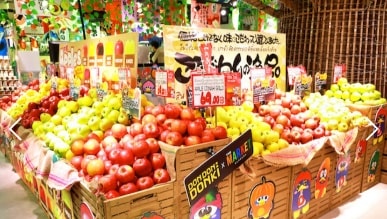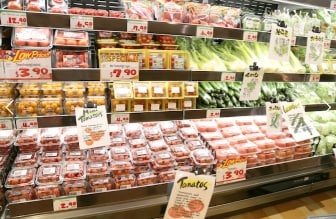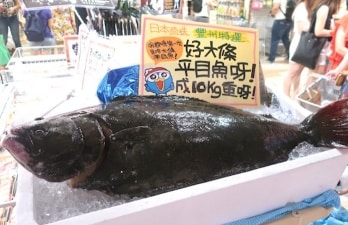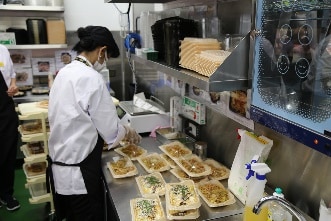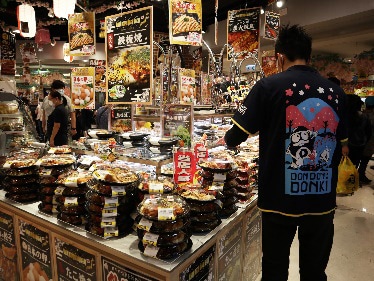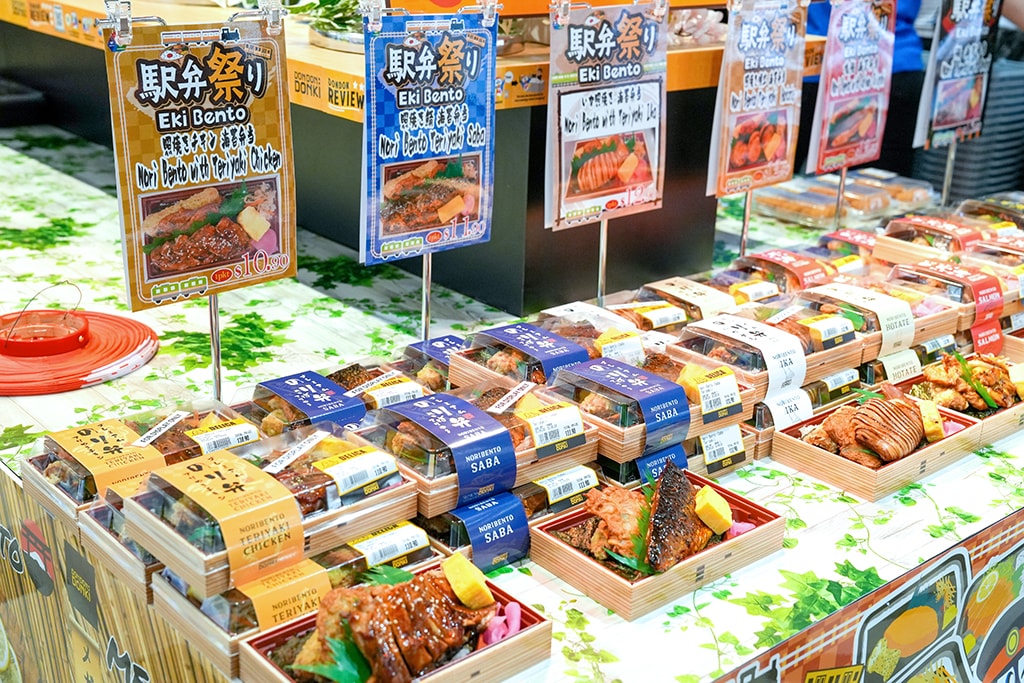Reduce CO₂ emission
-PPIH Group decarbonization targets
Subject: Domestic, including offices and a logistics center
[Major initiatives to achieve the target]
- (1)Improving the efficiency of energy use in store operations and reducing energy consumption by installing control equipment for air conditioning and refrigerated/frozen cases and dimming equipment for lighting, and by ensuring that temperature settings and lighting hours are appropriate.
- (2)Creation of renewable energy sources including solar power generation
- (3)Replacement with renewable energy through the use of non-fossil certificate transactions
Appropriate use of electricity and operational improvements in order to reduce energy use
In order to reduce the environmental impact of store operations, as well as ensure appropriate electricity usage, the PPIH Group has introduced LED lighting, which consumes less electricity, across all stores, as well as control equipment for air conditioning and refrigerated/freezer cases, and lighting dimmers and switches.
We are also working to reduce CO₂ emissions by distributing an energy-saving operations manual to store employees and encouraging them to use energy efficiently.
In addition, UNY has obtained ISO 14001 certification for its environmental management system at its head office and all of its stores. As one of the ISO environmental goals, and has set targets for reducing the consumption of electricity, gas, and heavy oil at each of it's stores, and is promoting energy saving efforts.
-Number of stores with energy-saving equipment installed
Air conditioning equipment: 327 stores
Refrigerated and freezer cases: 16 stores
LED dimming installation: 21 stores
-Number of ISO14001-certified stores
131 stores (certification rate among GMS stores in Japan: 100%).
*ISO14001-certified corporation: UNY Co., Ltd.
(As of June 2024)
Implementing renewable energy
In order to promote business activities with less environmental impact, we operate our stores using renewable energy and reduce CO₂ emissions through our business activities.
-No. of stores with renewable energy: 22 stores & 1 location (as of June 2024):
・Stores with Solar Power Generation Equipment: 12 stores
・Stores with On-Site CPPA: 6 stores
・Stores with Off-Site CPPA: 4 stores
・Stores with Green Power Implementation: 1 location
-Amount of solar power generated:
1,677,838kwh (April 2023 - March 2024)

MEGA Don Quijote Kofu Store

MEGA Don Quijote Sendaitomiya Store

Piago Bisai Store

Piago Kakamigahara Store
Reduction of CO₂ emissions in logistics
Our Group is advancing efforts not only to reduce CO₂ emissions from our stores but also to reduce CO₂ emissions generated throughout the entire supply chain. Particularly in the area of distribution, we are cooperating with logistics partners such as Senko Co., Ltd. to make freight transportation more environmentally friendly by using electric vehicles for the transportation and delivery of products etc.
Implementation of Modal Shift
A logistics partner, the SENKO Group, has been using truck transportation for the entire distance between its Kanto (Saitama City, Saitama Prefecture) and Kansai (Izumiotsu City, Osaka Prefecture) bases, but has switched to rail transportation (modal shift) for a part of the distance in order to reduce environmental impact. In implementing the modal shift, there were some issues such as waiting time during loading/unloading and longer cargo handling time, but we were able to adjust the time and quantity of cargo and achieved a significant reduction in terms of CO₂ emissions and driver operating time. This has resulted in a reduction of 105 tons of CO2 in FY2023* compared to before the transition.
*FY2023: from April 2023 to March 2024

Transportation by EV Trucks
We aim to reduce our environmental impact by using vehicles with low CO2 and NOx emissions (clean diesel engines, CNG (natural gas), hybrid and EV trucks) for delivering products to stores. Since 2023, we have been using two EV trucks (maximum load capacity: 3 tons) that do not emit CO2 during transportation to carry out deliveries to some stores in Tokyo and Saitama Prefecture.
This has led to a reduction of 13 tons of CO₂ emissions in FY2023* compared to before the transition.
*FY2023: from April 2023 to March 2024

Use of Double-Articulated Trucks
From 2023, we have begun operating double-articulated trucks in long distance transportation between our Kanto and Kansai sites. The use of double-articulated trucks makes it possible for one driver to transport the load of two large trucks, thereby reducing CO2 emissions and the number of vehicles used while saving manpower. This is an effective transportation method in both the aspects of improving productivity and reducing environmental impact. This initiative contributed to the reduction of 69 tons of CO2 emissions in FY2023* compared to before the transition.
*FY2023: from April 2023 to March 2024

Exporting Japanese products by the shortest route transportation
PPIC, the Group's partnership organization for expanding exports of Japanese agricultural, livestock, and fishery products, provides the shortest route transportation for direct exports from production areas. By exporting products overseas without passing through Tokyo and other depots, we are able to shorten the conventional domestic overland transportation distance and contribute to the reduction of CO₂ emissions.
As an example, when Sweet Potatoes from Kagoshima Prefecture are exported via Tokyo, the distance traveled is approximately 1,400km for domestic transportation alone, but by exporting directly from the production area to overseas, the distance traveled can be reduced to approximately 30km, a 98% reduction. In addition, temperature-controlled containers are used to transport agricultural products from Japan, ensuring that the freshness of agricultural products is maintained even during shipping to overseas stores. Appropriate temperature control prevents damage to the products and significantly reduces waste during the export period. In addition, products that lose their freshness during the sales process are used for side dishes prepared in the store in order to reduce food loss.
